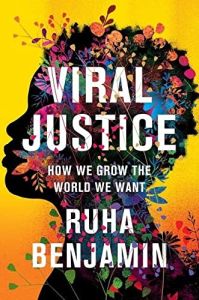In the age of COVID-19, you may view viruses as a lingering threat. But as contagions kill, so does sexism, classism, racism, ableism and colonialism, writes award-winning author and Princeton professor Ruha Benjamin. She seeks to inspire you to take individualized, small-scale actions to develop new networks of care and support for those in your community. Benjamin calls on readers to work towards building a more inclusive world in which all people can thrive, not merely survive. You can promote “viral justice” by committing to advance the collective good, creating spaces in which everyone feels safe to flourish.
Create “viral justice” by unlearning dominant narratives and promoting collective healing.
Forms of systemic oppression, such as sexism, classism, racism, ableism and colonialism, operate much like viruses. In maintaining the “privilege” of the status quo, systems of oppression kill people and rob them of the material and social conditions they need to survive. It’s time to treat these societal “viruses” as signals that something is wrong with the status quo. When you search for opportunities to dismantle oppressive systems and build a more inclusive, caring world, you pursue “viral justice.”
You may worry that you’re only one person. How can you change seemingly intractable systems? Let viral justice be your rallying cry, inviting others who desire change to join you. The first step of viral justice requires you to unlearn patterns of behavior and thought that reinforce dominant narratives. Reclaim the act of dreaming; imagine the promotion of a collective good rather than perpetuating the oppressive status quo.
Build support networks to weather the stress and physical damage caused by oppressive systems.
“Weathering” is a public ...
Ruha Benjamin is professor of African-American studies at Princeton University and also authored Race After Technology and People’s Science. She serves as founding director of the Ida B. Wells JUST Data Lab, which seeks to innovate how data is created, produced and disseminated.








Comment on this summary